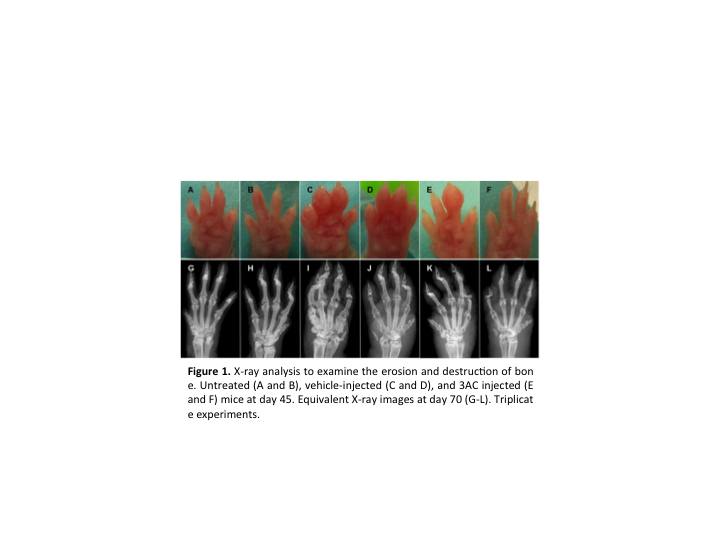Session Information
Session Type: ACR Poster Session A
Session Time: 9:00AM-11:00AM
Background/Purpose: The SH2-containing inositol-5’-phosphatase-1 (SHIP1) controls PI3K initiated signaling by limiting membrane recruitment and activation of AKT. SHIP1 knockout in mice leads to an increase of myeloid-derived suppressor cells (MDSCs) as well as the regulatory T-cells (Treg), both are important autoimmune regulators. MDSCs are blood cells of myeloid origin that are able to suppress T cell responses. A recent study suggests that MDSCs play a critical role in the regulation of collagen-induced arthritis (CIA) in mice, where the MDSCs suppress disease progression by inhibiting the immune response of CD4+ T cells. Although, an increased MDSCs seems to have suppressive effect on RA progression, the exact role of SHIP1 in the differentiation/expansion of MDSCs in RA remains unknown. Therefore, the objective of this project is to determine the role of SHIP1 in initiation and progression of RA. Our long-term goal is to develop novel strategies for the treatment of inflammatory arthritis diseases.
Methods: A specific SHIP1 inhibitor 3a-aminocholestane (3AC)-injected DBA mice were compared to vehicle-injected mice during Collagen-induced Arthritis (CIA) development. The development and severity of arthritis was assed using scoring system, histological analysis and X-ray imagining. We examined the effect of 3AC on the population of MDSCs and T cells obtained from peripheral blood, spleen, and bone marrow during CIA development through flow cytometry analysis.
Results: We found a delay of CIA onset and significant decrease in the progression of disease, compared with vehicle-injected mice. However, we also found that early suppressive effect on incidence and severity of CIA by 3AC disappeared around day 65. Additionally, there was significant reduction in 3AC-induced expansion of MDSC from day 43 to 63, while the number of T cells in peripheral blood of 3AC-treated mice was recovered to control levels. Histologic examinations of the joints from the CIA mice treated with 3AC showed no evidence of erosive arthritis, whereas the joints from mice treated with vehicle showed markedly erosive changes (Figure 1).
Conclusion: Our results suggest that SHIP1 inhibitor maintains the immunoregulatory microenvironment through an increase of regulatory myeloid (MDSCs) and T-cells (Treg). Further, pre-treatment of 3AC inhibits early onset of arthritis, and although this effect was limited and disappeared at later stage of the disease. SHIP1 inhibition was able to protect mice from severe bone destruction which it could be observed at late stage CIA.
To cite this abstract in AMA style:
So EY, Sun C, Dubielecka PM, Reginato AM, Liang OD. Inhibition of Lipid Phosphatase SHIP1 Expands Myeloid-Derived Suppressor Cells and Attenuates Rheumatoid Arthritis in Mice [abstract]. Arthritis Rheumatol. 2018; 70 (suppl 9). https://acrabstracts.org/abstract/inhibition-of-lipid-phosphatase-ship1-expands-myeloid-derived-suppressor-cells-and-attenuates-rheumatoid-arthritis-in-mice/. Accessed .« Back to 2018 ACR/ARHP Annual Meeting
ACR Meeting Abstracts - https://acrabstracts.org/abstract/inhibition-of-lipid-phosphatase-ship1-expands-myeloid-derived-suppressor-cells-and-attenuates-rheumatoid-arthritis-in-mice/
